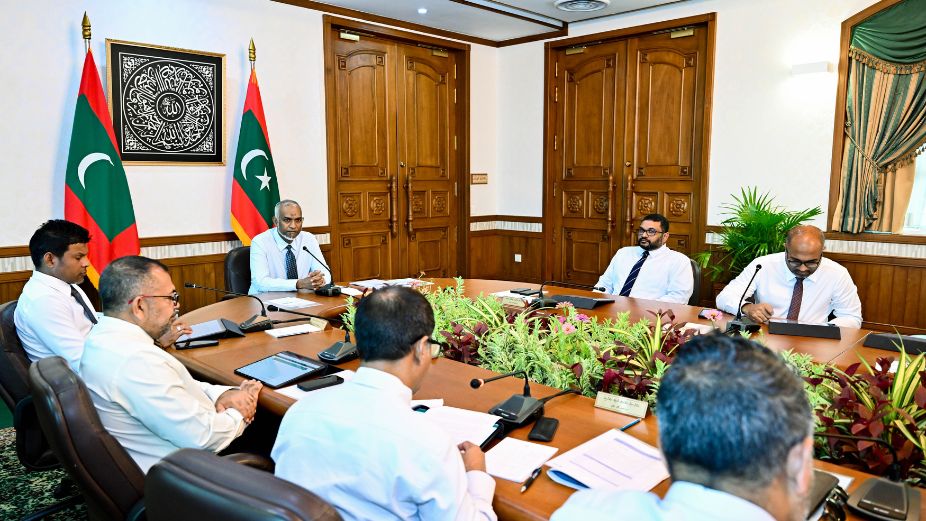
President Dr Mohamed Muizzu has announced that the Cabinet has approved a decision to import a range of essential food items in bulk through the State Trading Organisation (STO), in a move aimed at easing pressure on household budgets and addressing growing concerns over food security.
The plan will see STO take on the import of 10 types of fruits, 10 types of vegetables, as well as staples including rice, sugar, flour, lentils, eggs, and potatoes. The decision follows weeks of sharp increases in food prices, with apples and oranges rising from MVR 4–5 to as high as MVR 13.
STO has already begun selling oranges at MVR 35 per kilogram as part of the initiative. The company has previously intervened in the market by importing goods such as coconuts to stabilise prices. Past administrations have similarly relied on STO bulk imports, particularly during Ramadan, to keep basic foodstuffs affordable.
The rise in food prices comes against the backdrop of sustained currency pressures. Traders attribute the surge to the cost of foreign currency, with the black market exchange rate for the US dollar holding above MVR 20 for several weeks, compared to around MVR 16 earlier in the year. Businesses have also reported sluggish activity due to fewer development projects, reducing overall circulation in the economy.
While the government has described the move as part of its broader food security policy, critics argue it falls short of ensuring long-term resilience. Former Finance Minister Ibrahim Ameer said that real food security requires cultivating commonly imported crops within the Maldives, not simply importing them through state-owned enterprises. He also warned that the policy could put private traders at risk by displacing them from markets they have long served.
Ameer further claimed that STO’s role is funded by resources collected from private businesses and tourists, which he argued may hurt the wider business community. He cautioned that reducing prices through state imports does not equate to true food security, which would mean the country could sustain itself without dependence on external supplies during emergencies.
For the government, however, the decision aligns with commitments outlined in President Muizzu’s manifesto, with the administration presenting it as part of its efforts to improve access to affordable food and shield the public from price shocks.












